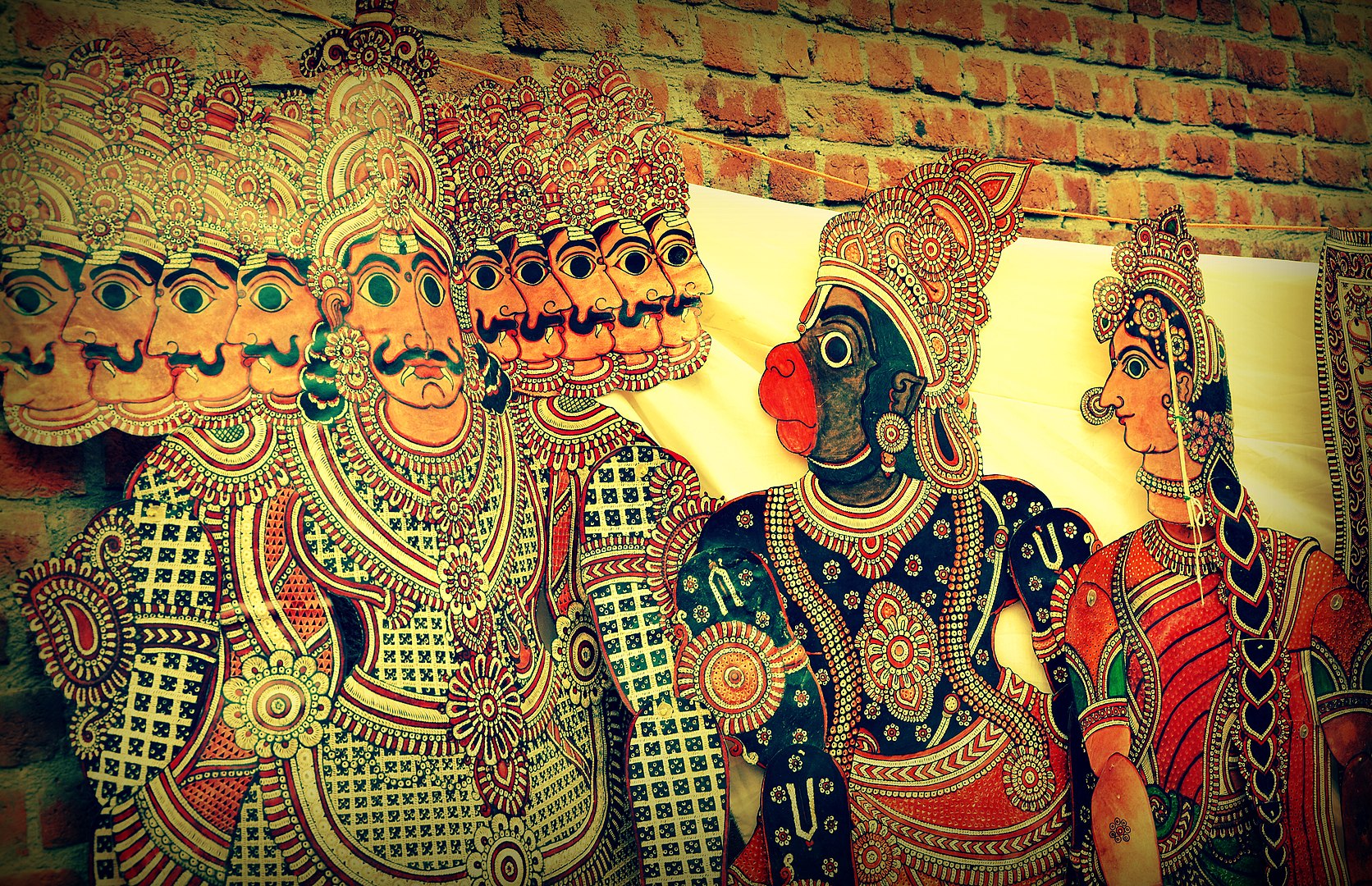Glimpse into the fascinating world of Indian mythology! If you wish to explore the diverse world of myths and mythmaking associated with Indian culture, choose from these ten books.
Indian mythology is a rich tapestry of folklore, legends, and epics that have been passed down through generations. These tales form an integral part of the cultural fabric of India, offering glimpses into the origins of myths and the profound beliefs that have shaped the nation’s identity.
The stories of Indian mythology are not mere religious texts; they are captivating narratives that have evolved over centuries. Their origins can be traced back to ancient times when oral storytelling was the primary means of preserving and sharing knowledge. As these tales were passed from one generation to the next through the spoken word, they were embellished, modified, and enriched with each retelling. Consequently, the myths became a fusion of history, philosophy, and imagination, representing the collective consciousness of the people.
While we may never truly know the veracity of these myths or discern their original versions, their allure lies in their ability to captivate and inspire. These stories have stood the test of time, transcending religious boundaries and captivating readers from all walks of life. They offer insights into the cultural, moral, and philosophical beliefs of ancient India, allowing us to glimpse the society that shaped them.
Thanks to the endeavors of numerous Indian authors, these timeless tales have been meticulously preserved and retold in solid print. Whether you seek scholarly analyses or imaginative reinterpretations, the diverse range of Indian mythology books has something to offer everyone. Let’s embark on a literary adventure as we explore a curated list of 10 mythology books that delve into the realm of Indian culture.
- 1. The Immortals of Meluha by Amish Tripathi
- 2. Palace of Illusions by Chitra Banerjee Divakaruni
- 3. Asura by Anand Neelakantan
- 4. Mith = Mithya by Devdutt Pattanaik
- 5. Lanka's Princess by Kavita Kane
- 6. The Liberation of Sita by Volga
- 7. Arjuna: Saga of a Pandava Warrior-Prince by Anuja Chandramouli
- 8. Ahalya by Koral Dasgupta
- 9. The Daughter from a Wishing Tree: Unusual Tales about Women in Mythology by Sudha Murty
- 10. The Complete Mythology Collection by Anant Pai
1. The Immortals of Meluha by Amish Tripathi
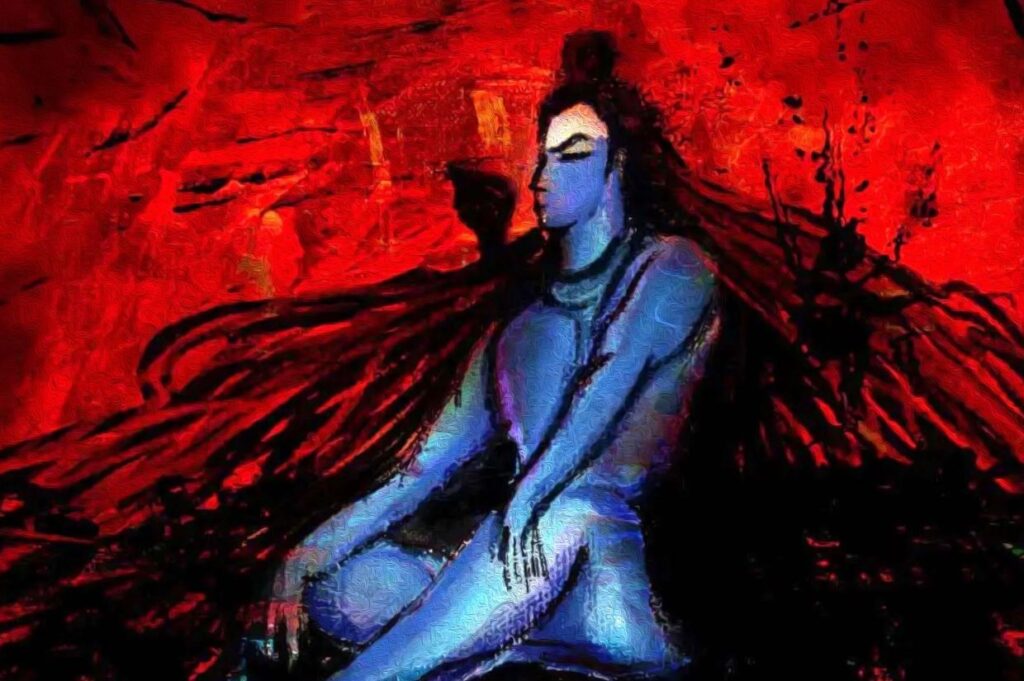
The Immortals of Meluha [2010] marks the beginning of the popular Shiva Trilogy series, which has garnered immense praise and a dedicated fan base. With millions of copies sold worldwide, it has also been adapted into a graphic novel and is in the process of being made into a motion picture.
Drawing inspiration from the ancient Hindu mythological character of Lord Shiva, Tripathi reimagines Lord Shiva as a mortal hero named Shiva, who is drawn into a war-ravaged land called Meluha, the supposed land of the Suryavanshis. Meluha is believed to be the perfect society, guided by the benevolent Lord Ram, but it hides dark secrets and impending doom.
What sets The Immortals of Meluha apart is Tripathi’s unique interpretation of Lord Shiva. Unlike the traditional depiction of Shiva, known as the destroyer, Tripathi portrays him as a compassionate leader who grapples with personal struggles and is thrust into a monumental battle between good and evil. The book explores themes of identity, loyalty, and the power of belief while delving into political intrigue and ancient prophecies. It blends mythology and fiction, offering a fresh perspective on this popular deity and immersing readers in an epic adventure filled with suspense, action, and profound philosophical insights.
2. Palace of Illusions by Chitra Banerjee Divakaruni
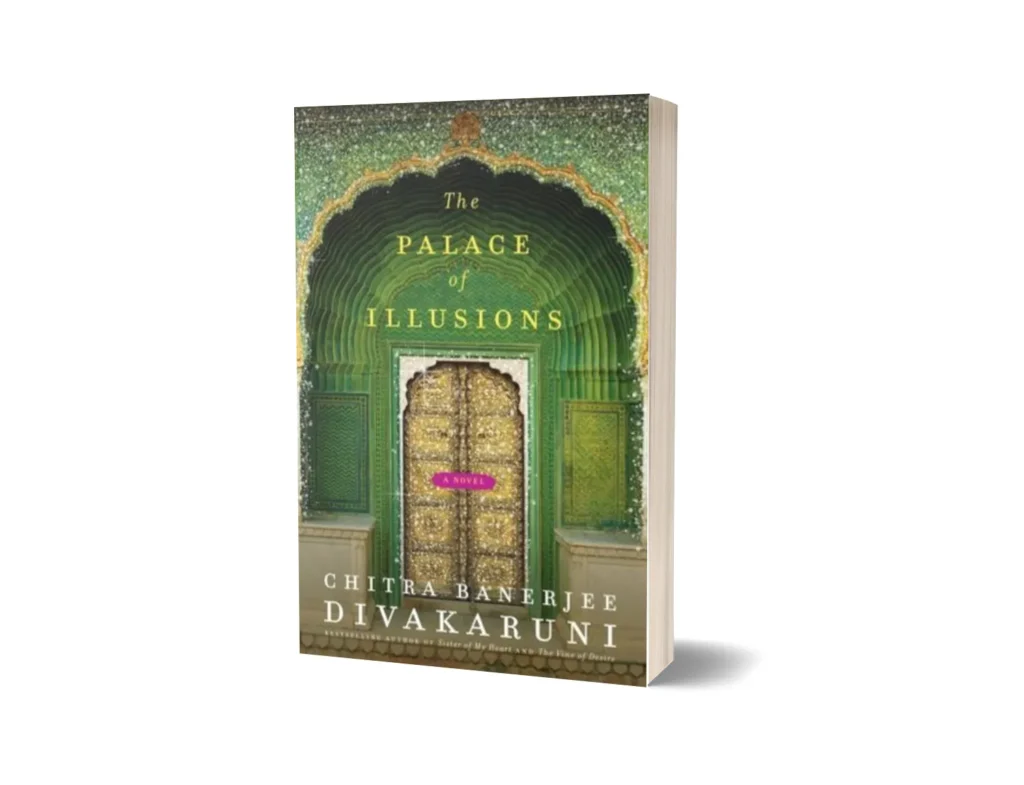
This is a remarkable novel that offers a unique and thought-provoking perspective on one of the most revered characters from Indian mythology, Draupadi, the wife of the five Pandava brothers in Mahabharata. It has received numerous accolades, including the prestigious James Tiptree, Jr. Award for exploring gender issues in a mythological context. The Palace of Illusions retells the Indian epic, the Mahabharata, from the perspective of Draupadi. Divakaruni’s interpretation of Draupadi’s journey and her complex relationships helps the narrative explore Draupadi’s desires, dreams, and struggles, shedding light on her pivotal role in shaping the events of the Mahabharata.
Divakaruni’s portrayal challenges the traditional portrayal of Draupadi, offering a feminist perspective and delving into the intricacies of her motivations, emotions, and experiences as it unfolds against the backdrop of the great Kurukshetra War.
With her lyrical prose and meticulous research, Divakaruni transports readers to a mythical era, exploring timeless themes of love, honour, duty, and the complexities of human relationships. Palace of Illusions is a compelling and poignant reimagining of the Mahabharata, breathing new life into an ancient epic and inviting readers to contemplate the multifaceted nature of the characters and the profound lessons they hold.
3. Asura by Anand Neelakantan
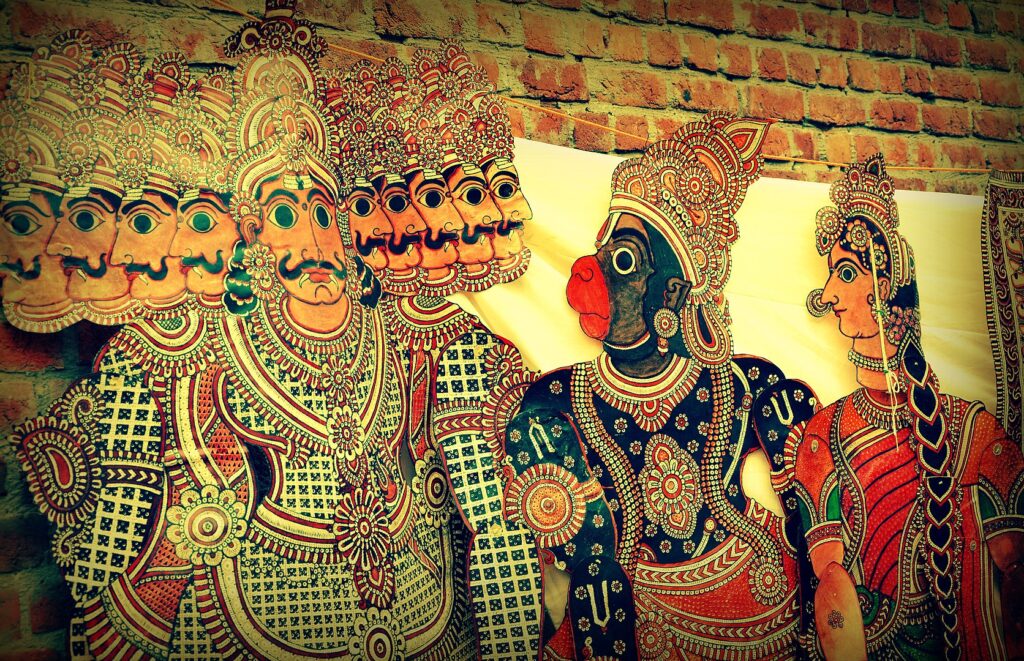
This novel presents a fresh and compelling perspective on one of the most demonized characters from Indian mythology. Neelakantan’s storytelling prowess and meticulous research bring forth a narrative that challenges readers to empathize with the so-called antagonist.
Asura [2012] is based on the Indian epic, the Ramayana, but diverges from the popular version by focusing on Ravana, the ten-headed demon king of Lanka. Neelakantan skillfully delves into Ravana’s motivations, emotions, and inner struggles, humanizing him and questioning the simplistic notions of good and evil. He explores his relationships and the societal forces that shape him. The narrative invites readers to question preconceived notions and consider the perspectives of those traditionally depicted as villains by drawing a detailed account of Ravana’s life, from his humble beginnings to his rise as a powerful ruler and his ultimate downfall in the face of divine forces.
Asura offers a thought-provoking exploration of power, morality, and the complexity of human nature, shedding light on the untold stories and motivations of the often-overlooked characters from mythology.
4. Mith = Mithya by Devdutt Pattanaik
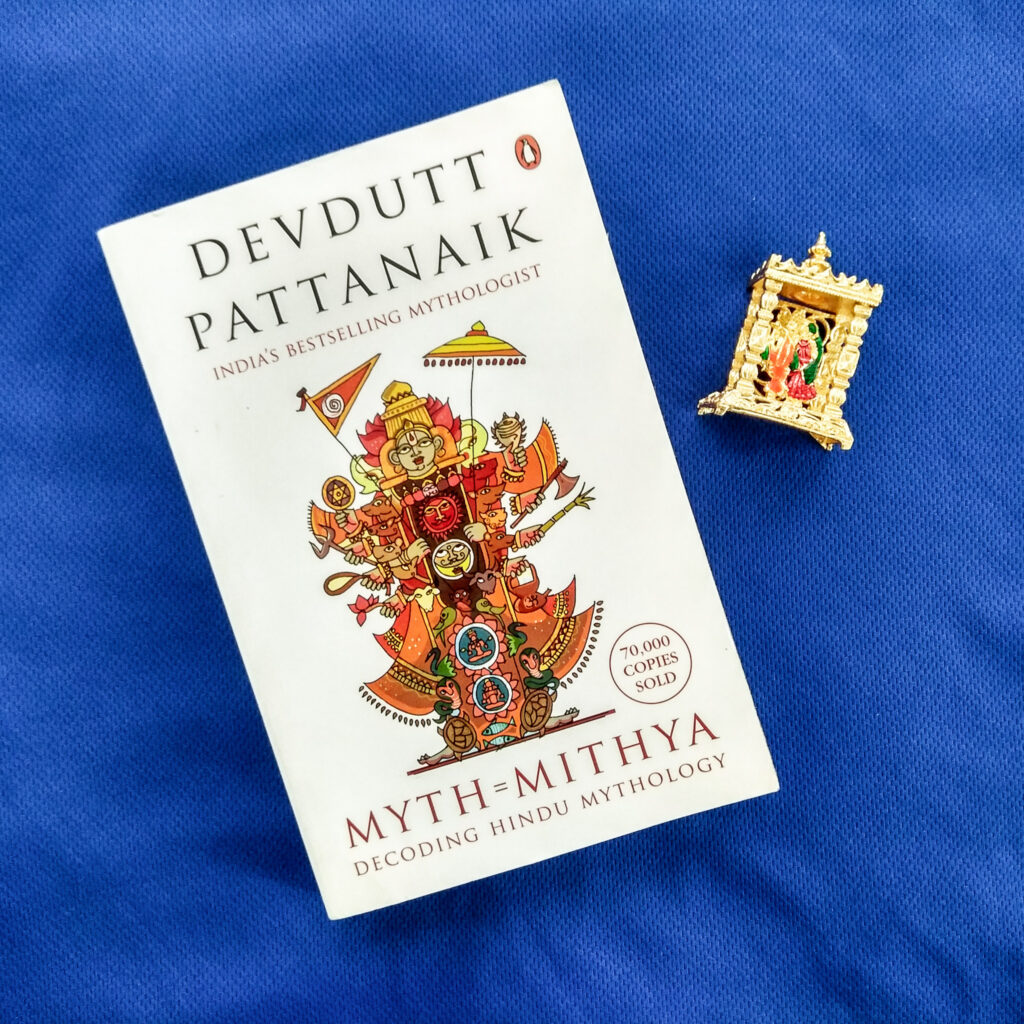
This is a fascinating book that unravels the intricate layers of Hindu mythology, providing readers with a comprehensive understanding of its symbolism and underlying meanings. It has become a popular resource for those interested in exploring the depths of Hindu mythological narratives. It has been praised for its accessible writing style, making complex concepts and symbolism more approachable for readers.
The book delves into the vast and diverse world of Hindu mythology, shedding light on the various gods, goddesses, and mythical creatures that populate the pantheon. Devdutt Pattanaik explores the intricate narratives and symbolism behind these mythological figures, demystifying their significance and drawing connections to broader philosophical and cultural concepts. He intertwines traditional stories with insightful interpretations, inviting readers to contemplate the deeper meanings and moral lessons embedded within Hindu mythology. Through concise summaries, thought-provoking analyses, and vivid illustrations, Mith = Mithya serves as a valuable handbook that brings Hindu mythology to life.
In Mith = Mithya [2006], Pattanaik presents mythology as a dynamic and living tradition, highlighting its fluidity and the diverse interpretations it has garnered over time. It challenges the readers to question their assumptions and encourages them to engage with these ancient stories in a meaningful way.
5. Lanka’s Princess by Kavita Kane
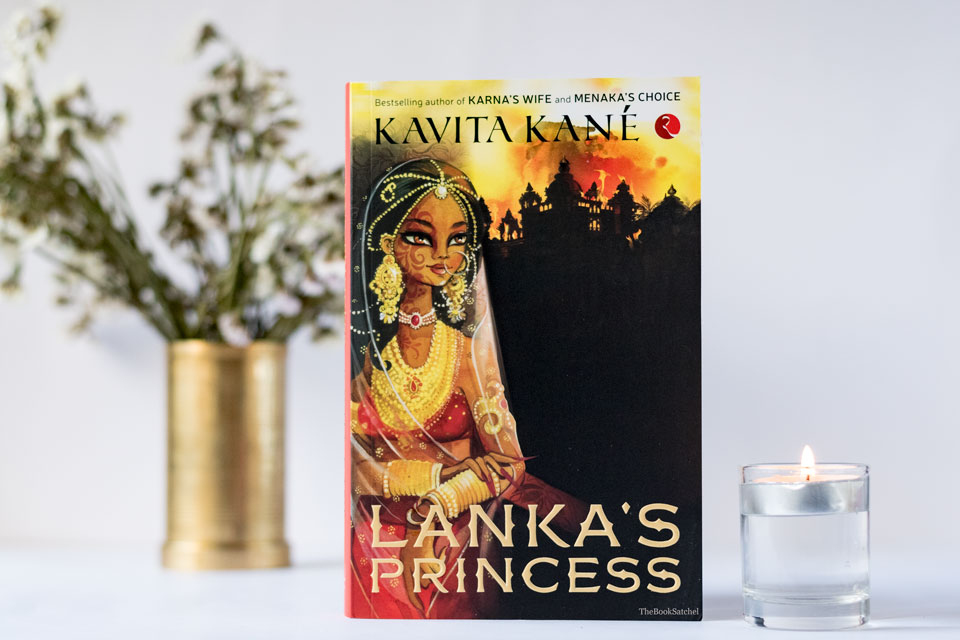
This is an enthralling novel that offers a fresh and captivating perspective on one of the most intriguing characters from the Indian epic, the Ramayana. The book has gained considerable acclaim for its compelling storytelling and unique exploration of the epic’s narrative.
The book is centred around Surpanakha, the demon princess of Lanka, who is often relegated to a minor role in traditional retellings of the Ramayana. Kane delves into Surpanakha’s life, motivations, and experiences, painting a vivid picture of the woman behind the demon persona. She offers a nuanced portrayal that challenges the one-dimensional portrayal of Surpanakha as a mere villainess. The book explores themes of love, loss, revenge, and the consequences of choices made, all through Surpanakha’s eyes.
What makes Lanka’s Princess [2016] special is Kane’s exploration of Surpanakha’s journey and her relationships with her family members, including her infamous encounter with Rama and Lakshmana. The novel humanizes Surpanakha, presenting her as a complex character with her own desires, aspirations, and vulnerabilities. It challenges the readers to question preconceived notions and reconsider the complexities of characters often relegated to the sidelines. Kane’s storytelling prowess makes this book a compelling read, providing a voice to a previously overshadowed figure and shedding light on the untold stories within the epic.
6. The Liberation of Sita by Volga
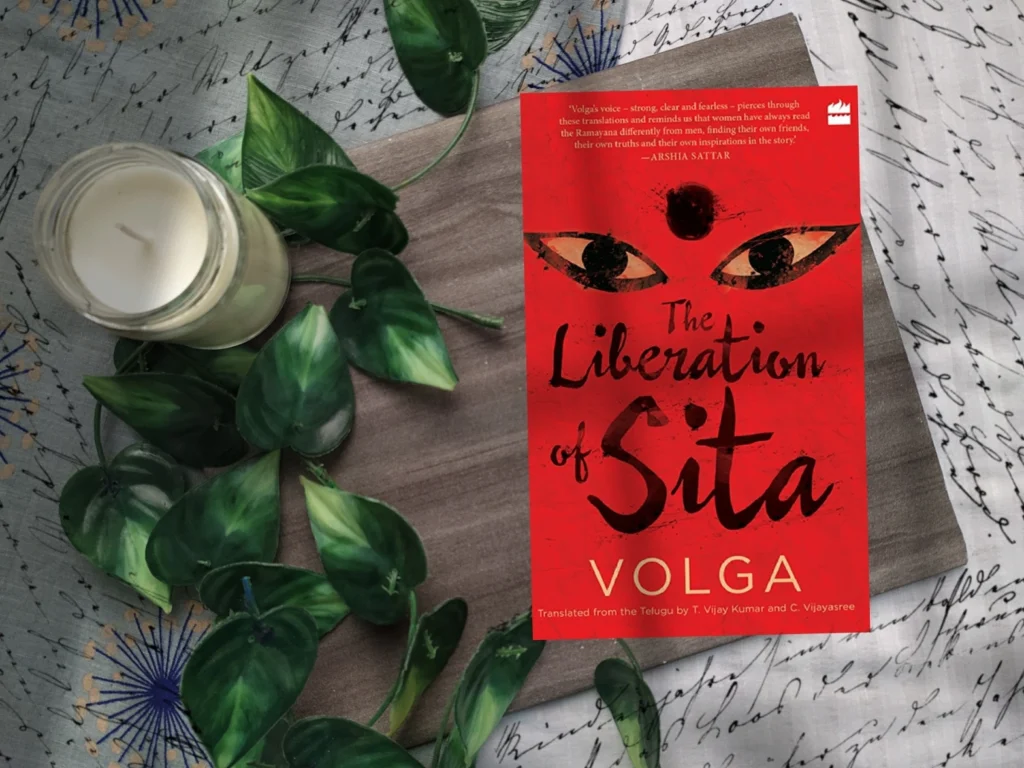
This novel reimagines the character of Sita from the Indian epic, the Ramayana and has been celebrated for its exploration of women’s voices within the Ramayana.
The novel centres around Sita, the beloved wife of Rama, who is often portrayed as a passive and submissive figure in traditional retellings. Volga presents a compelling reinterpretation, delving into Sita’s inner thoughts, emotions, and agency. The book challenges societal expectations and sheds light on the struggles faced by women in patriarchal societies. Volga’s Sita is a complex and multidimensional character, highlighting her resilience, intelligence, and unwavering spirit.
In The Liberation of Sita [2016], readers are immersed in a narrative that confronts the injustices faced by women and raises questions about societal norms and gender roles. Volga’s evocative prose and skilful storytelling give voice to Sita’s journey, offering a fresh and empowering perspective on her life beyond the confines of her relationship with Rama. The novel is a profound exploration of female agency, independence, and the pursuit of self-discovery within the context of an ancient epic. The narrative resonates with contemporary readers and inspires conversations about gender equality and individual liberation.
7. Arjuna: Saga of a Pandava Warrior-Prince by Anuja Chandramouli
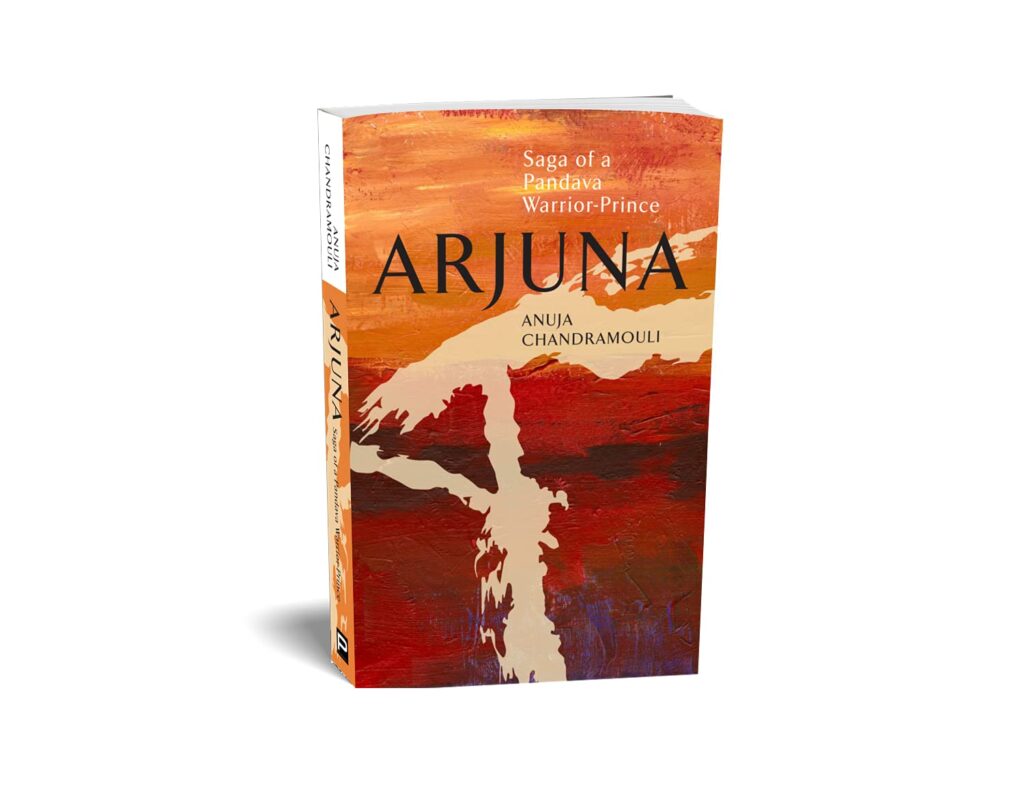
This is an enthralling novel that delves into the extraordinary life and adventures of Arjuna, one of the most revered Pandava princes from the Indian epic, the Mahabharata. It has received widespread acclaim for its captivating narrative and vivid portrayal of Arjuna’s journey.
The novel is based on the character of Arjuna and his pivotal role in the Mahabharata. Anuja Chandramouli skillfully weaves together the various episodes and trials faced by Arjuna, showcasing his warrior skills, his moral dilemmas, and his profound spiritual journey.
What sets Arjuna: Saga of a Pandava Warrior-Prince [2013] apart is Chandramouli’s deep exploration of Arjuna’s psyche. The book explores his complex relationships, inner conflicts, and pursuit of righteousness in the face of adversity. Chandramouli provides readers with a deeper understanding of Arjuna’s motivations and his evolution as a warrior and a person. The novel brings forth the profound teachings of the Bhagavad Gita, which Arjuna receives from Lord Krishna on the battlefield, shedding light on the deeper philosophical and spiritual aspects of his character. It is a rich tapestry of adventure, mythology, and introspection, showcasing the heroism and complexities of Arjuna’s character.
8. Ahalya by Koral Dasgupta
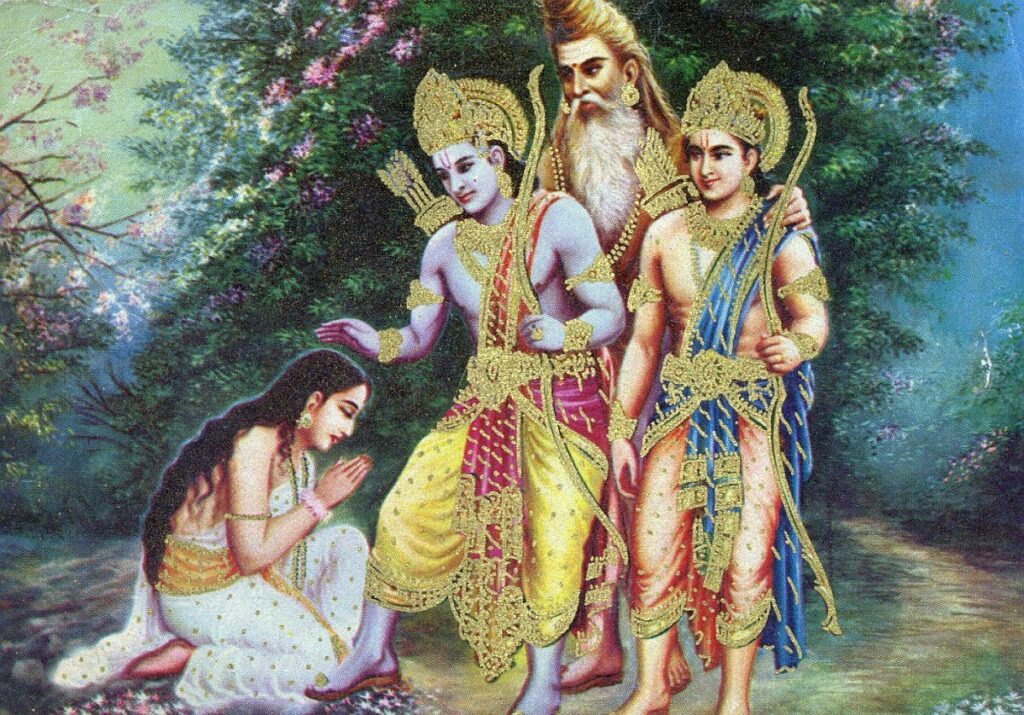
This novel offers a unique and imaginative retelling of the mythical character Ahalya from Indian mythology and has gained recognition for its exploration of the themes of identity, empowerment, and societal norms.
The novel is based on the character of Ahalya, who is often depicted as a cursed and marginalized figure in traditional narratives. Koral Dasgupta presents a subversive and thought-provoking reinterpretation, delving into Ahalya’s inner world, desires, and agency. The book challenges existing narratives and offers a nuanced portrayal of this enigmatic character. The book explores the complexities of Ahalya’s relationships, her struggles against societal expectations, and her quest for self-discovery and liberation.Dasgupta weaves together elements of mythology, history, and social commentary, crafting a compelling narrative that resonates with readers.
In Ahalya [2020], readers are transported to a world where tradition clashes with individual aspirations. The novel offers a fresh perspective on Ahalya’s life, highlighting her resilience, strength, and resilience in the face of adversity. It prompts readers to question established narratives and reevaluate their perceptions of female characters within mythology. Through lyrical prose and vivid descriptions, Dasgupta breathes new life into an age-old tale and offers a fresh perspective on this often-overlooked figure from Indian mythology.
9. The Daughter from a Wishing Tree: Unusual Tales about Women in Mythology by Sudha Murty
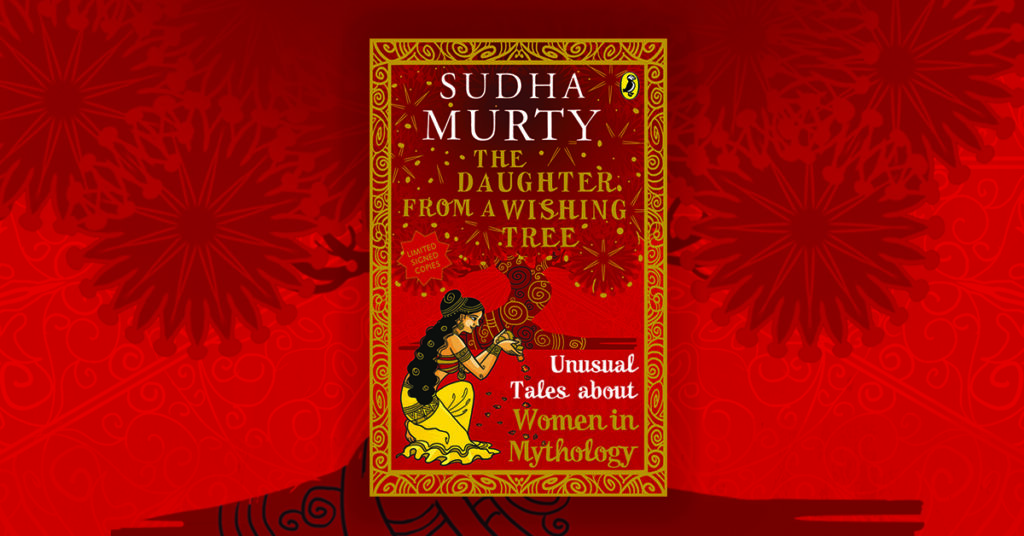
This is a captivating collection of stories that shines a spotlight on the often overlooked and underappreciated women from Indian mythology. It is a testament to Sudha Murty’s ability to bring these lesser-known female characters to life.
The Daughter from a Wishing Tree [2019] highlights the often untold stories of women such as Savitri, Damayanti, and Draupadi, shedding light on their courage, resilience, and wisdom. Murty delves into their experiences, challenges societal norms, and explores themes of love, loyalty, and empowerment. What sets this collection apart is Murty’s ability to bring a contemporary lens to these age-old stories. She infuses the narratives with modern sensibilities and explores the relevance of these women’s stories in today’s society.
Through her insightful retellings, Murty encourages readers to find inspiration in the tales of these women and reflect on the timeless lessons they impart. It is a testament to Sudha Murty’s passion for storytelling and her commitment to preserving the narratives of women in mythology. Through this collection, she also invites readers to appreciate the strength, resilience, and wisdom of these remarkable women who have left an indelible mark on Indian mythology.
Also Read: How Feminist Retellings are Quickly Shaping our Understanding of Myths
10. The Complete Mythology Collection by Anant Pai

The Complete Mythology Collection, written by Anant Pai, the creator of the popular Amar Chitra Katha series and Tinkle comics, is a captivating book series that was first published in 1967. Fondly known as “Uncle Pai,” he was a renowned Indian writer and educator who dedicated his life to popularizing Indian mythology and history among children.
This delightful collection has garnered widespread acclaim and has been translated into various languages. The Amar Chitra Katha series has sold over 100 million copies to date, making it one of the most beloved and successful comic book series in India. The books delve into various characters and epics from Indian mythology, such as the Ramayana, Mahabharata, and the Puranas. Uncle Pai’s retellings bring these ancient tales to life, catering to young readers while maintaining the essence and integrity of the original stories. The books are illustrated beautifully, making the reading experience even more immersive and enjoyable.
It is crucial for readers, young and old alike, to explore this remarkable collection. While marketed as a children’s series, The Complete Mythology Collection offers a valuable opportunity to reconnect with the rich heritage of Indian mythology. It provides an accessible entry point for those new to these epics and presents a fresh perspective for those already familiar with them. The book’s engaging narrative style, coupled with vibrant illustrations, guarantees a delightful and educational journey into the world of Indian mythology for young readers.

